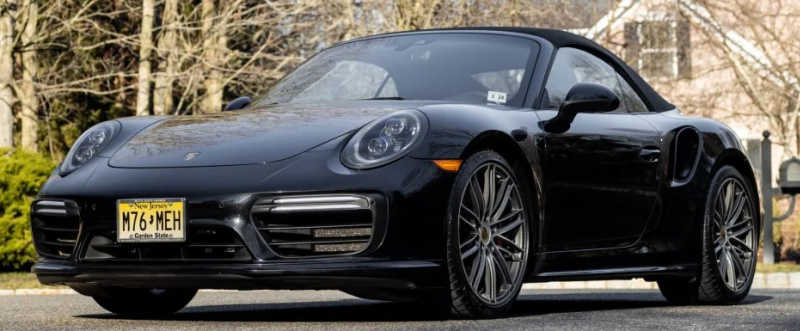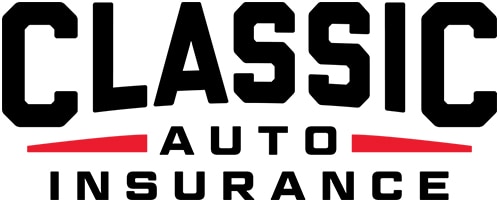The end of this year’s first quarter saw some historic changes that will likely impact both car collector buyers and sellers. Unfortunately, as the economy slows, you can expect less money going around for classic vehicles, and shifting interest rates are also heavily impacting collector car sales. In this edition of The Month in Motoring, we discuss the changing economic landscape and how it will likely impact sellers and buyers.
Change in Interest Rates
Historically, investing in a classic car was a relatively safe bet — why put your money in a bank with a low return when you could invest in a classic car with a better return on investment? Of course, getting a good return on a vehicle was never a guarantee, but classic cars do typically appreciate from year to year.
Now, however, investors can park their money in safer investments thanks to shifting interest rates. Guaranteed investments, such as treasury bills and certificates of deposit (CDs), now offer lucrative returns. Interest rates rose to 5% in March, and some financial institutions offer even higher interest rates for their CDs.
These shifting interest rates could threaten the classic car industry because many will likely want to put their money in guaranteed investments, especially with a 5% return. Rather than worrying about car upkeep and the challenges associated with selling a car, investors can make money from more straightforward investments.
Plus, there’s been a significant downturn in the stock market, which impacts the value of luxury items and classic cars. Many people face financial uncertainty when the economy slows and avoid making risky purchases. In turn, this decrease in demand negatively impacts the market value for luxury items and classic cars. People concerned about losing their jobs tend not to spend their money on luxury items or cars, even if the vehicle may eventually offer a positive return. Instead, they’ll gravitate toward safer investments, such as treasury bills and CDs.
Sadly, the changing economy will likely impact the classic car industry in the coming years, especially for sellers.
Selling a Classic Car in the Current Economic Environment
We already see the shifting economy’s impact on classic and luxury car markets. The slowing economy means fewer people are in the market for non-essential luxury items, such as classic cars, and this decrease in demand means lower prices.

Take, for example, a 2019 Porsche 911 Turbo Cabriolet available on Bring a Trailer. The car failed to sell despite having an asking price of only $105,000, around 25% below its value. This likely reflects the fact that investors are gravitating toward safer investments. Rather than buying a luxury car that requires upkeep and insurance, investors are instead going for lucrative CDs as well as other guaranteed investments.
It’s becoming increasingly commonplace for classic and luxury cars to either not sell or sell at a discounted price. You should consider this if you’re hoping to sell a vehicle soon.
Depending on what you’re selling, there may be far fewer potential investors than there were this time last year. Of course, this doesn’t mean it’s impossible to profit from your classic car investment, but it may be more challenging in the current economy. If you’re willing to offer a reasonable and realistic price, you’ll likely be able to find buyers, but you may need to take a loss depending on your car’s demand.
If you’re financially able to hold onto your vehicles, you’ll likely want to weather the storm and wait until the economy shifts before selling.
Opportunities for Classic Car Buyers
The current economic climate is less than ideal for classic car sellers, but this could be a unique opportunity for those wanting to start building a classic car collection.
When the economy slows, more people are forced to part ways with luxury items and investments, including classic cars. There will likely be more sellers than buyers, meaning that you’ll have more opportunities to buy below market value, as was the case with the collector car Porsche 911. As more people sell their classic cars, you’ll likely see prices decrease because there aren’t enough willing investors.
Although you could call the current classic car market a “buyer’s market,” you should still always do your homework before investing in a classic car, even if it appears to be a great deal. Classic cars are significant investments, and it’s important to understand the history and condition of the vehicle before committing to a purchase. When you do your due diligence in researching the cars available, you’ll likely find a lucrative and enjoyable investment opportunity in a stunning classic.
Never Stop Enjoying Your Collector Cars
Above all else, make sure to enjoy your classic vehicles, even if they don’t offer a great return in the current economy. Investing in a classic is about much more than making a positive return — it’s about staying connected with our automotive roots and having a great time driving thrilling vehicles. It’s up to you to make the most out of your investments and continue enjoying this fulfilling hobby.
Perhaps it’s time to visit an enjoyable classic car show or event. Recently, the Historic Racing Association had its annual Spring Fling at the historic Sebring International Raceway in Florida. It was a marvelous showcase of racing cars from all eras and proved to be an incredibly fun event.
The Spring Fling is just one example of the numerous car events that take place all over the country! Consider looking up car events near you and never stop enjoying this satisfying hobby with other classic car enthusiasts.





